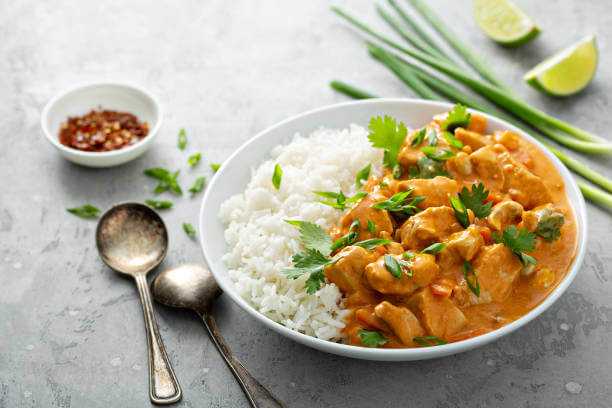
Are you fond of west African dishes?
If you’re looking to get a taste of west Africa from home, cooking with Egusi is a great place to start. Egusi soup is one of Nigeria’s most iconic dishes, and for good reason. It tastes great on its own or as a seasoning for a more complex dish.
Egusi also comes with tons of health benefits. You can press it into butter or oil or roast it with various seasonings. One of the best things is that there’s almost no wrong way to use it. Everyone can come up with their own recipe, but there are suggestions.
The depth of flavour and possibilities that Egusi allows for are astronomical. Want to know how to start cooking with Egusi? Read on to learn what it is and more.
What is Egusi?
Egusi is many things in terms of culture and cuisine. Egusi is a type of seed from particular cucurbitaceous plants. The most common are melons, gourds, and squash found across West Africa.
Egusi is a primary ingredient in dishes from Nigeria and Ghana. It’s also popular in Mali, Cameroon, the Ivory Coast, Benin, Togo, and Burkina Faso. However, there is an ongoing debate about which cucurbitaceous plants count as Egusi.
Some argue that Egusi should refer only to the seeds of plants growing in West Africa. By that logic, melon seeds from California wouldn’t count as Egusi.
Pumpkin seeds technically come from a gourd, but not all experts can agree on if they’d count as Egusi. It all boils down to a diversity of regional and individual opinions.
If you stick with seeds from gourds, melons, and squash, you’ll usually be safe in the knowledge it’s Egusi. The rest is a matter of personal taste.
The Health Benefits of Egusi
People across West Africa and the diaspora have hailed Egusi as more than a tasty snack. This icon of west African cuisine is also full of health benefits. The seeds are rich in antioxidants, as well as healthy fats.
This high amount of unsaturated fatty acids makes Egusi beneficial for your heart health. Egusi is also rich in various vitamins, minerals, and nutrients. A quick list includes fibre, magnesium, vitamins B1 and B2, zinc, calcium, and potassium.
These characteristics make Egusi the perfect snack to improve your appetite and boost your metabolism. These protein-rich seeds also attribute healthier skin and complexion to eating the seeds. As a high source of protein, Egusi can aid in bone development and formation.
The Many Ways To Enjoy Egusi
Egusi is an incredibly versatile ingredient. This is because there is a surprising amount of rich umami flavour trapped inside Egusi seeds if you know how to bring it out. However, the most popular way to eat Egusi is Egusi soup.
There is almost no wrong way to eat or enjoy Egusi, but there are some popular examples. The most common is to eat them raw in the shell or roast them. Some prefer them in their traditional form, while others add seasoning upon roasting.
This is similar to eating sunflower, watermelon, or pumpkin seeds in other parts of the world. Because of the natural oils and healthy fat content, you could also make butter from Egusi. Robo is a popular snack made from what’s left of the seeds after that process.
If you’re an advocate of no food waste, Robo is definitely something to try.
You can also ferment Egusi seeds. If you do that, you can create ogiri – a popular local West African spice. Because Egusi is protein-rich, you could also use them as an alternative to meat.
Throw it in a traditional sauteed or slow-cooked dish, but you don’t have to. Egusi makes for an interesting replacement for chickpeas in vegetarian chilli, for example. They add an extra layer of flavor to any stir-fry.
The Joys of Egusi Soup
When it comes to West African cuisine, soups hold pride of place. Almost no single soup in the region quite holds the same place in our hearts as Egusi soup does. While you can use Egusi as a supplementary ingredient to other soups, in Egusi soup, it’s the main ingredient.
The seeds provide thickness and they supercharge the flavor. To make Egusi soup, you first need to sun dry the seeds, deshell them, and grind them down. You can use raw Egusi or roasted, so long as it’s been properly dried and processed.
Egusi soup is usually made with an additional source of protein, such as beef, chicken, goat, or fish. The additional ingredients that go into the soup vary.
Options include collard greens, tomatoes, onions, locust beans, and spices like pepper, ginger, and thyme. Smoked fish or crayfish power can also add an extra level which the Egusi compliments. The best part about Egusi soup is that the composition is 100% up to you.
You only need ground Egusi seeds. The rest of the way you flavor or cook your soup is for you to decide. Every village and family has their own version of Egusi soup, and you’re also free to create a unique rendition.
All About Egusi
Egusi seeds are some of the most versatile, flavorful, and popular elements of West African cuisine. Coming primarily from melons, gourds, and squash, you can eat the seeds straight up or prepare them. Many people make butter or oil using Egusi and the seeds have tons of health benefits.
Egusi seeds are a simple ingredient to work with, but if you’re unsure where to start, Egusi soup is your safest bet. Having a reliable way to source the ingredients you’ll need, like Egusi, will go a long way. At Niyis.co.uk, we have everything you need for African or Caribbean cuisine, so contact us today.





Leave a comment